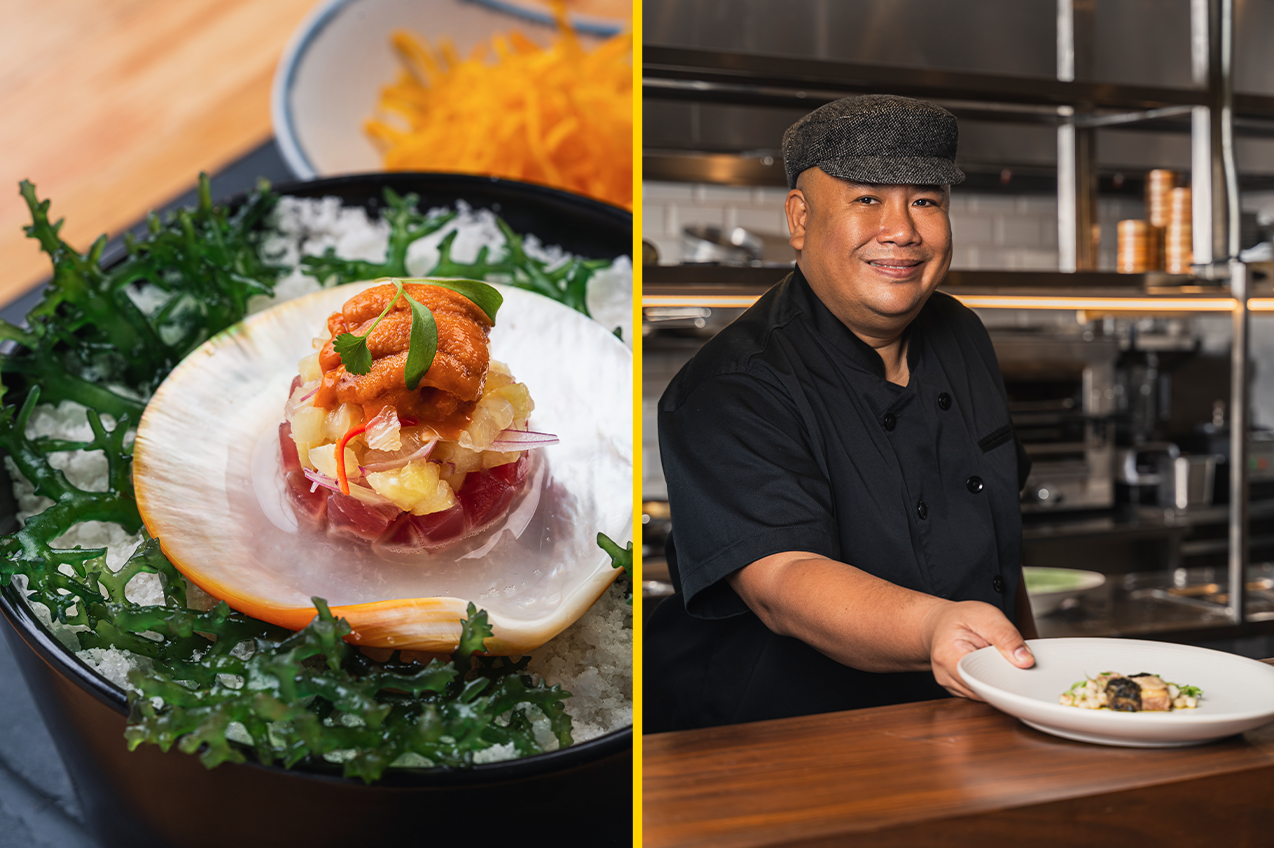“I don’t want this food to be deep and progressive,” says Myke “Tatung” Sarthou, as we gamely dove into the thoughtfully crafted tasting course he served us for lunch. “I just want to bring back memories.”
Such is his dream for Filipino cuisine at his newest endeavor Lore Manila, nestled cozily in a quiet corner of One Bonifacio in BGC. At Lore, Sarthou—a chef that’s a bit of a pandemic household name now thanks to his popular Facebook series showing Filipinos how to cook food with simple yet strong flavors—is not trying anything too complex and complicated in his takes on local and regional fare. But for someone with relatively casual taste buds myself, I couldn’t tell the difference. Almost everything was revolutionary, and it was just that good.
What Sarthou is doing is actively making connections to various food cultures around the country with his takes on dishes. Hence, “lore.” “My challenge was figuring out how to make Filipino food that’s not cliché but still stays true to traditional flavors,” he says.

Take for example his kinilaw, a staple in many seaside towns (and inuman sessions). Sarthou makes his version with raw tuna, sea urchin, and pickled pineapple, giving that familiar sour kick and soft texture, and complements it with the crunch of more muted kamote strings. There’s a story in each item on his 10-course menu: For this one, Sarthou harkens back to his trips to Cebu, where they would feast on kinilaw and seafood.
There’s another surprising favorite in there, the beef dish Sarthou calls Moros y Kristianos. In this dish, he combines two different flavors from two wildly different parts of the Philippines. On top of slow-braised ribs, he slathers on two versions of gata—a white sauce inspired by Bicol express (Kristianos) and a black sauce made with burnt coconuts, a recipe learned from the Tausugs of southern Mindanao (Moros). It makes for great-tasting curry, and it was one dish we wish we could ask seconds of.
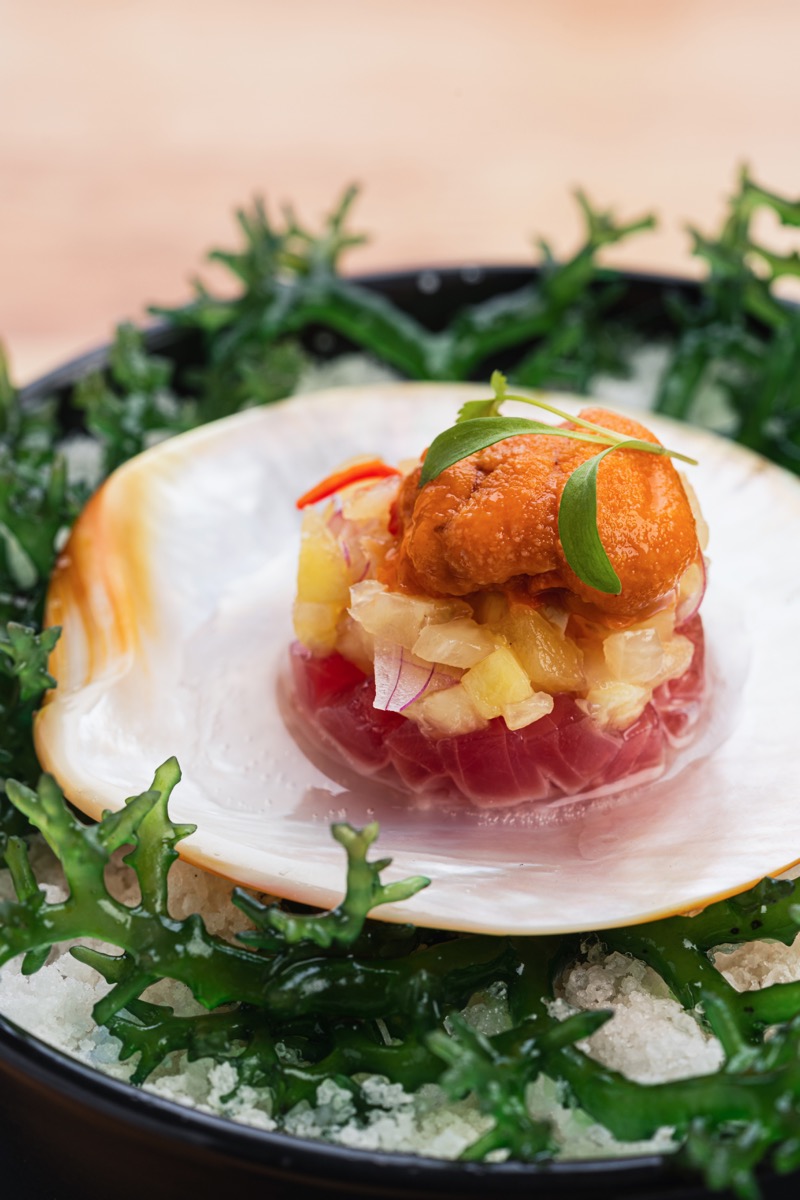
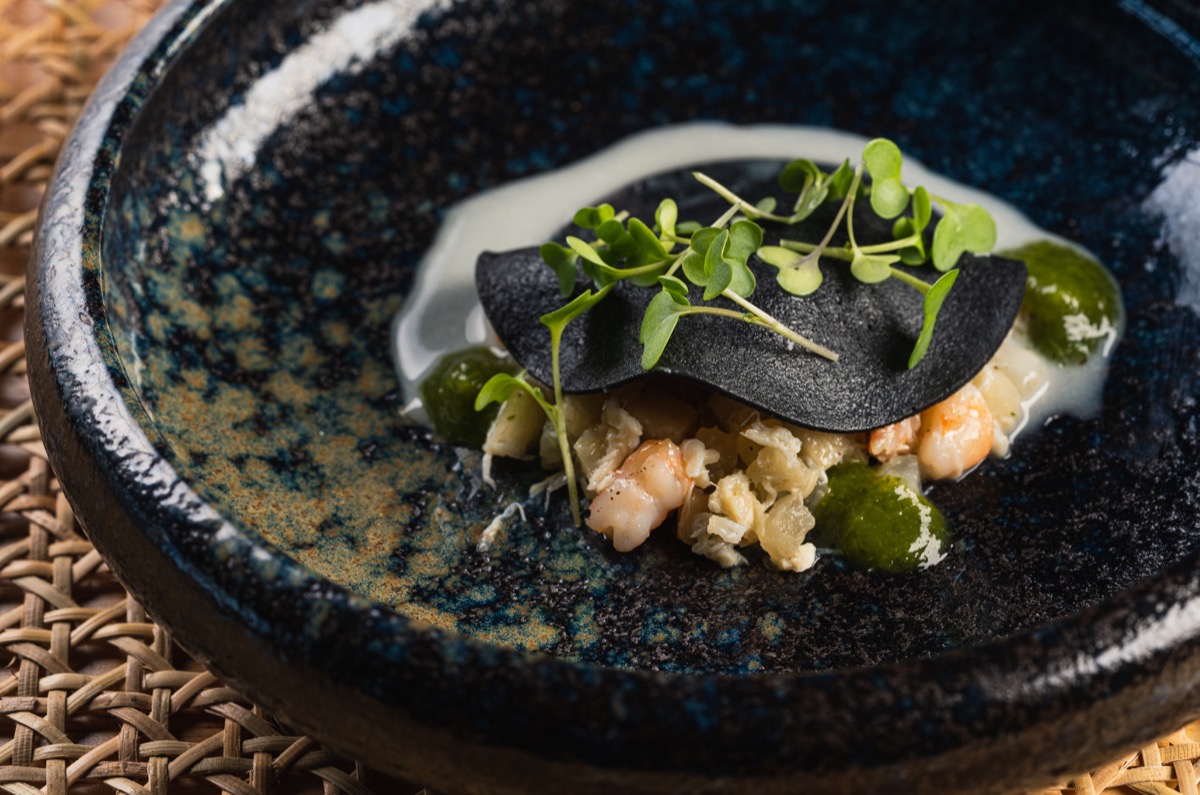
One thing diners might be pleasantly tickled to taste is the Pato con Salsa Tsokolate—as the name says, it’s duck cooked in chocolate sauce. Sarthou takes the tradition of colonial-era cooking with chocolate, which was used primarily as a savory ingredient than a sweet one, and transports it from the 18th century to the 21st. I’m personally not a big fan of duck, but the chocolate sauce, which is sweeter than history intended, makes the gamey fowl a lot more palatable. Perhaps this might just be the only way I’ll have duck.
The 10 courses are rounded out nicely by two desserts, which may be the closest to original flavors out of the whole menu. The first dessert, coming before the last two main dishes, is a classic sherbet made with fruits of the season; the second is a Mango Jubilee sponge cake made with Tres Leches, flambeed mango, lemon sabayon, and trusty vanilla ice cream. Honestly, dessert after eight courses of great food felt a little indulgent and too much, but it’s always welcome.
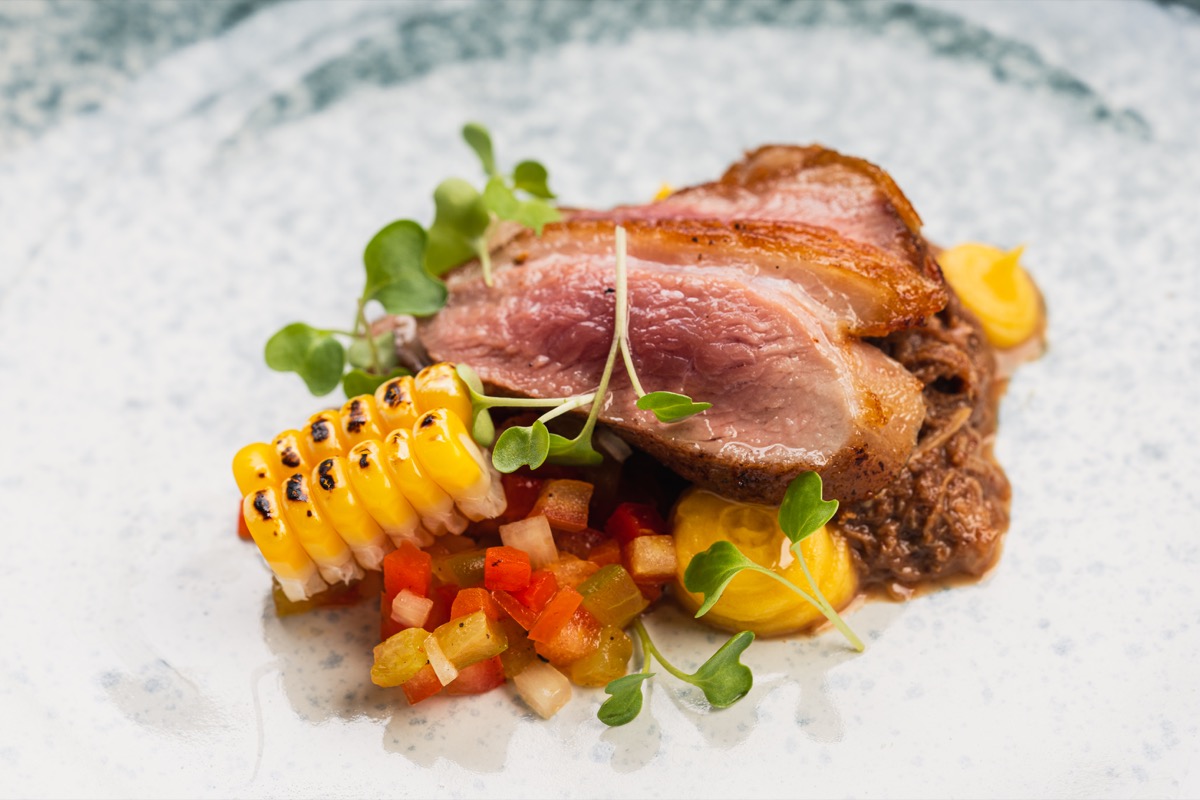
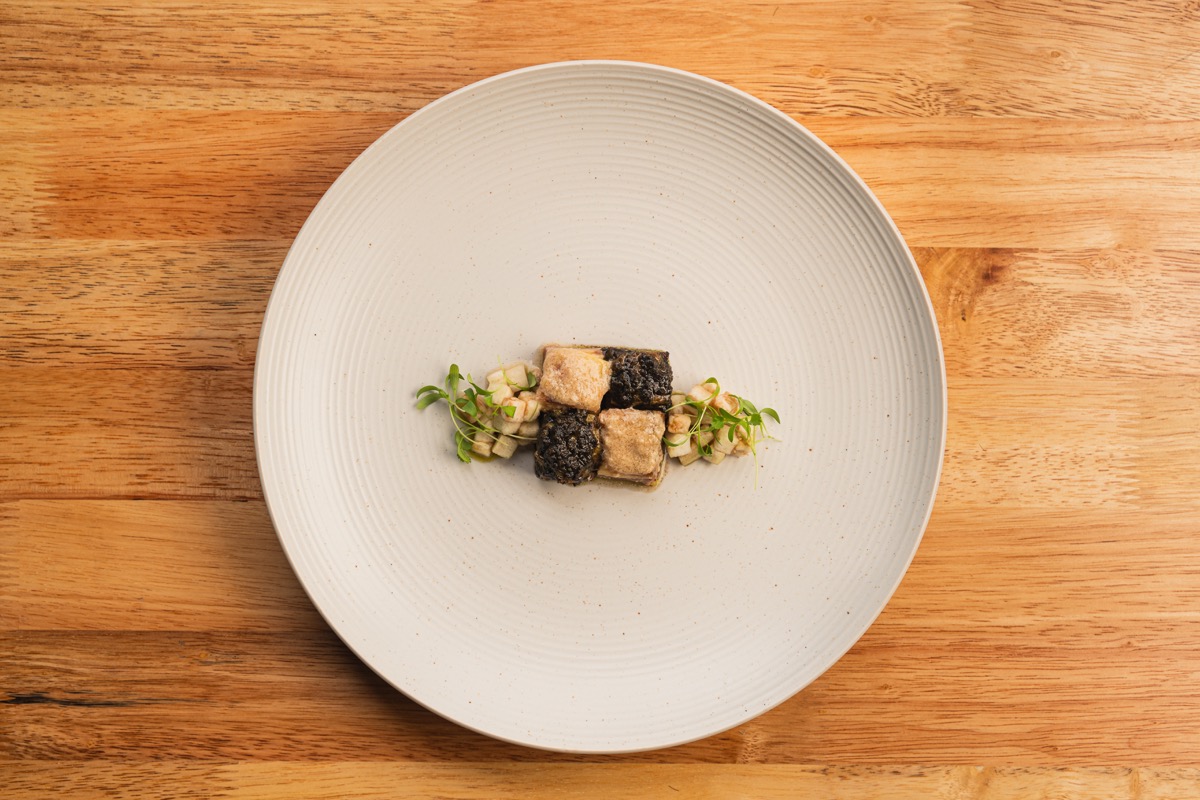
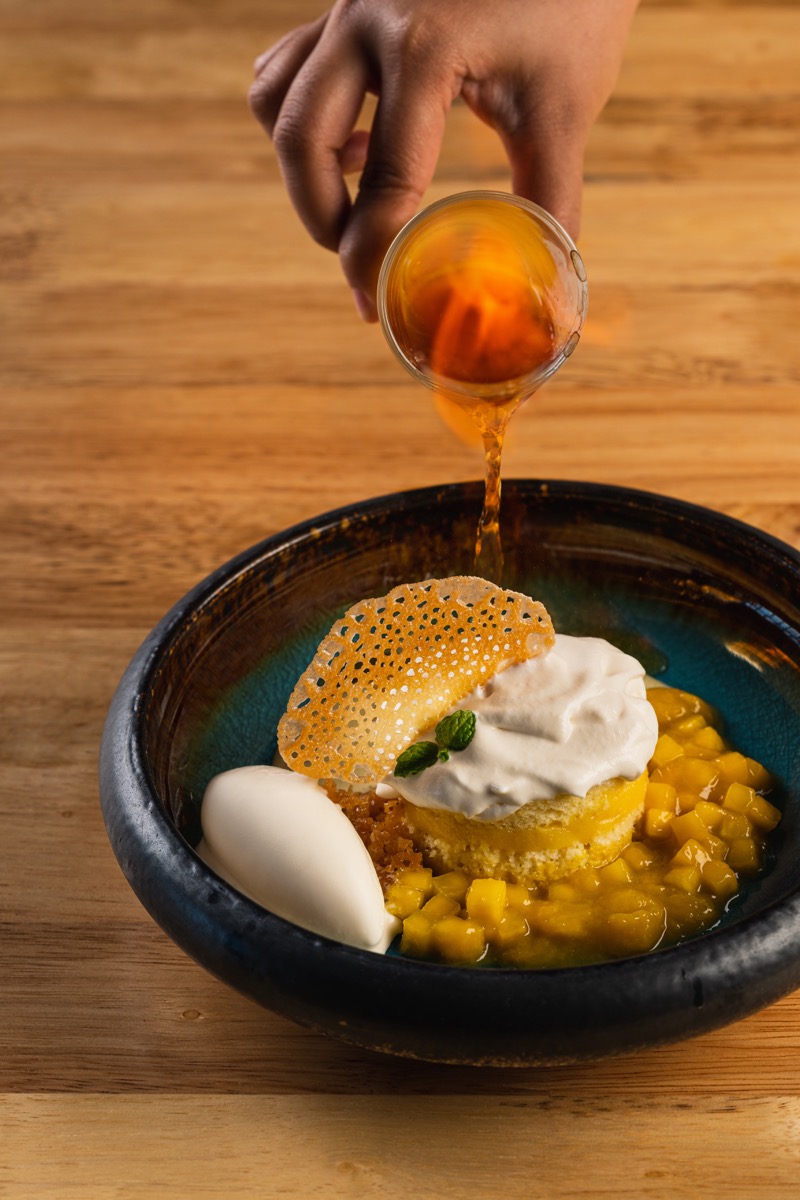
Lore is best enjoyed by those looking to taste a different approach to Filipino food; Sarthou said he wanted to avoid any clichés, and for the most part, he does a good job of dodging them. Anyone looking for familiar and comforting cuisine won’t find it here, but if they want something that tastes amazing and will linger with them long after they’ve left the restaurant, Lore is definitely worth diving into.





